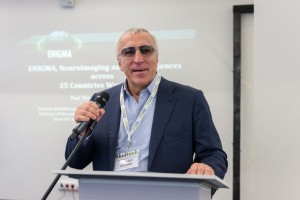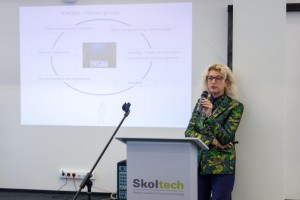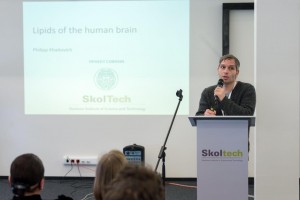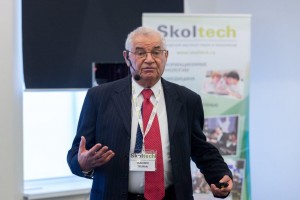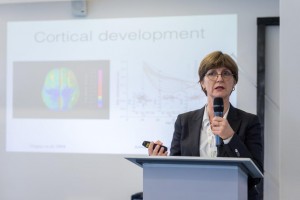An international group of scientists has discovered that despite significant similarities, human and primate brains are much different than we previously thought. Specifically, they found that the neocortex microarchitecture was considerably reorganized during the course of the human evolutionary process.
To arrive at this conclusion, a group of scientists from Russia, China and Germany led by Skoltech Professor Philipp Khaitovich examined new gene expression features in different layers of the prefrontal cortex of the human brain and compared their findings with chimpanzee and macaque brains.
While the study of high level cognitive abilities in humans remains a key priority within the fields of medicine and neurobiology, evolutionary changes in brain organization and function remain unresolved. In their recent study, Khaitovich’s team of scientists analyzed the RNA of successive sections of the prefrontal neocortex. They identified more than 2,320 human-specific genes, markers of neocortex layers. Their research revealed some 367 genes that exist in human brains in a completely different layer of the cortex than that found in chimpanzees.
By comparison, a similar study analyzing macaque and chimpanzee brains only revealed 133 genes that exist in a completely different layer of the cortex of the chimpanzee, despite the fact that considerably more time has passed since the evolutionary division of the chimpanzee and the macaque than of the chimpanzee and the human.
Unique features of gene expression in different layers of the human prefrontal cortex make it possible for humans to develop new means of regulating cognitive functions in the context of aging and brain pathologies.
“This work – the creation and analysis of large RNA databases isolated from different layers of the prefrontal cortexes of humans, chimpanzees, and macaques – provides a valuable resource for the scientific community. The discovery of many new, human-specific markers, and the switching of gene expression between neocortical layers became possible due to the comparative-evolutionary approach to molecular mechanisms of cognitive functions,” said Olga Efimova, a Skoltech research scientist and one of the study’s leading authors.
“Our immunohistochemistry analysis revealed that human-specific gene expression changes affected not only neurons but also a wide range of other cells, for example, astrocytes and microglia. It underlines the results of recent studies on the critical role of these cells in information storage and integration,” Olga said.
Khaitovich’s research group is searching for molecular mechanisms specific to the evolution of human cognitive functions. For these purposes, they perform extensive genome, transcriptome, lipidome and metabolome data integration. The data is obtained from the brain samples of modern and ancient humans, as well as related species such as chimpanzees, macaques, and mice.
The results of the study were published in the prestigious scientific journal, Nature Neuroscience.
Contact information:
Skoltech Communications
+7 (495) 280 14 81
